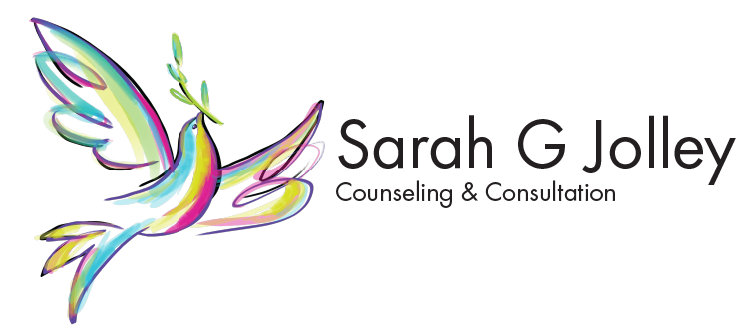Sarah G Jolley, MA, CMHC, LMHC, CMHS
I grew up in Salt Lake City and moved to the Pacific Northwest in 1995 to further my education, build a career in counseling, and raise my daughter. Prior to pursuing a master’s degree in Counseling Psychology, I worked for 10 years supporting individuals with Developmental Disabilities.
Upon graduating with my MA from Saint Martin’s University, I spent 10 years working in community mental health – both as a therapist and as a director of two clinics. My years spent in community mental health were incredibly influential in confirming my sense of compassion and equality. Administering community mental health services fueled my passion for social justice and solidified my commitment to serving all members of my community with equal respect and dignity regardless of economic status, race, sexual orientation, gender identity, mental health diagnoses, or other often stigmatizing identities. I carry this commitment into my private practice and use it as a guiding principle in all of the work I do with clients.
My commitment to serving individuals and my community inspired my decision to enter the mental health field.
When I was a young adult, I was a member of Justice, Economic Dignity and Independence for Women (JEDI Women) – addressing healthcare reform, working parent childcare funding, and barriers affecting low-income women and families. I joined the National Organization for Women (NOW) and advocated for equal rights for all marginalized identities. Later in life I spent 5 years serving as a local cooperative school’s scholarship advisor – reviewing scholarship applications and advising the board on how to allocate funds in order to make their program available to all people regardless of income barriers. I spent 13 years as a volunteer meal coordinator and cook at the Salvation Army’s Community Kitchen – feeding, nourishing, and making friends with my community.
This is all to say that the choice to pursue a career in counseling was in natural alignment with my desire to provide support, advocacy, and empowerment to individuals in my community in living the best version of their lives.

